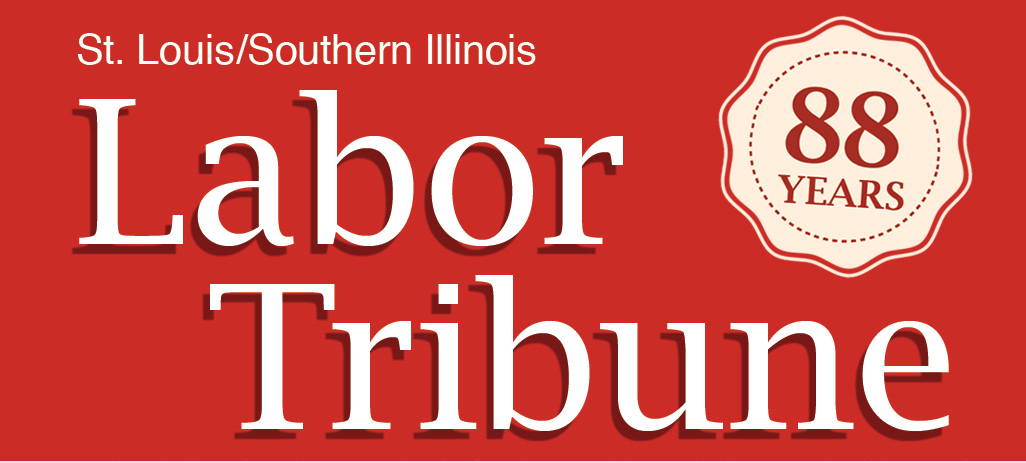Labor Day Still Matters
 By DAVID A. COOK
By DAVID A. COOK
President
 Most of you are reading this right after Labor Day, a holiday that marks a handful of unofficial traditions despite having a deeply important history. Sure, after Labor Day you’re not supposed to wear white (although no one has ever told me when you can start wearing it again) and many cite the holiday as the unofficial end of summer, marked most often by pool closings. Labor Day usually coincides closely with the beginning of our fall sports and usually falls right around the beginning of the school year as well.
Most of you are reading this right after Labor Day, a holiday that marks a handful of unofficial traditions despite having a deeply important history. Sure, after Labor Day you’re not supposed to wear white (although no one has ever told me when you can start wearing it again) and many cite the holiday as the unofficial end of summer, marked most often by pool closings. Labor Day usually coincides closely with the beginning of our fall sports and usually falls right around the beginning of the school year as well.
It’s worth remembering briefly why we have a Labor Day and reflecting on just how bad things were for many workers in this country before Organized Labor stepped in.
President Grover Cleveland signed Labor Day into law as a federal holiday in 1894, but by then, more than 30 states were already celebrating Labor Day, going all the way back to the first, Oregon, which created the holiday in 1887.
So why a national Labor Day? Sure, some of us get a nice three-day weekend to wrap up the summer. Maybe it’s our chance to time our vacations or squeeze in one last grill in the backyard before temperatures drop and the sun starts vanishing much earlier in the day.
INCALCULABLE CONTRIBUTION
Labor Day doesn’t exist for three-day weekends or as an excuse for sales and discounts. It exists because of the incalculable contribution made by Organized Labor in the decades leading up to the holiday, and in the prevailing 120 years since.
Sometimes people think that because the systemic issues unions eradicated have been gone for so long, unions are antiquated or unnecessary. Sure, Organized Labor abolished child Labor in a nation where children as young as six were working in coal mines. While children haven’t been marched into mills or mines in generations, it’s worth noting that more and more states are trying to make it easier for companies to hire children as young as 13.
Sure, Organized Labor is how we got the 40 hour workweek, the concept of weekends, the eight-hour workday, and more. But let’s remember that those wins were not enjoyed universally. Plenty of workers consistently work well in excess of eight hours per day or 40 per week, and not always by choice. Employers demand more and more of employees as the workforce market tightens. Many of our own partners have seen this in action. Less help means more work for the people still around, and companies continue to demand the same level of productivity with less and less resources to get there.
Those victories are generations old, why do we still needs unions? To that I would answer: look around and tell me with a straight face that the American worker does not need as much help as they can get.
Now, to be fair, this isn’t universally true. There are some employers that go out of their way to treat employees well, to keep their workforce happy and well compensated. I’ve said before in a perfect world there wouldn’t be Labor unions because no one would need them. Bosses would treat employees with respect and dignity in this perfect world, and employers would offer good wages and benefits and everyone would be able to afford healthcare and retire with dignity.
WORKER EXPLOITATION
We don’t live in a perfect world. We live in one where all the incentives push employers and bosses to exploit workers whenever possible because the overwhelming motivation is profit. The more profitable a company, the more wealthy those are at the top and the richer the shareholders. In this world, a world where the cost of goods is ever increasing, one of the few places you can reduce costs is in the labor force. So companies reduce hiring, freeze wages, cut benefits, lay off workers, and automate elements of their jobs.
In the world we live in, fewer and fewer employers offer defined benefit pension plans and workers are left to rely on decades of investing in the market to retire. In the world we live in, employers have minimal incentive to offer decent benefits because — like in retail in particular — the workforce is transient and those benefits aren’t always a key factor in selecting a job.
In the world we live in, we have kept children out of the mines, but too often we keep parents from having enough time with their children at home. We have created the weekend and the standard work week and at the same time, become too comfortable demanding that workers “help out” by doing more and more.
In the world we live in, many people live in places where their very identity can get them fired from their job. In the world we live in, too many workers can’t afford to go to the doctor or take time off work to care for a loved one.
A perfect world isn’t possible because nothing and no one is perfect. Labor cannot solve every problem for every worker, but we can continue to try as we have done for nearly two centuries in this country. A perfect world isn’t possible, but a better world is. That’s why we celebrate Labor Day.



Leave a Reply